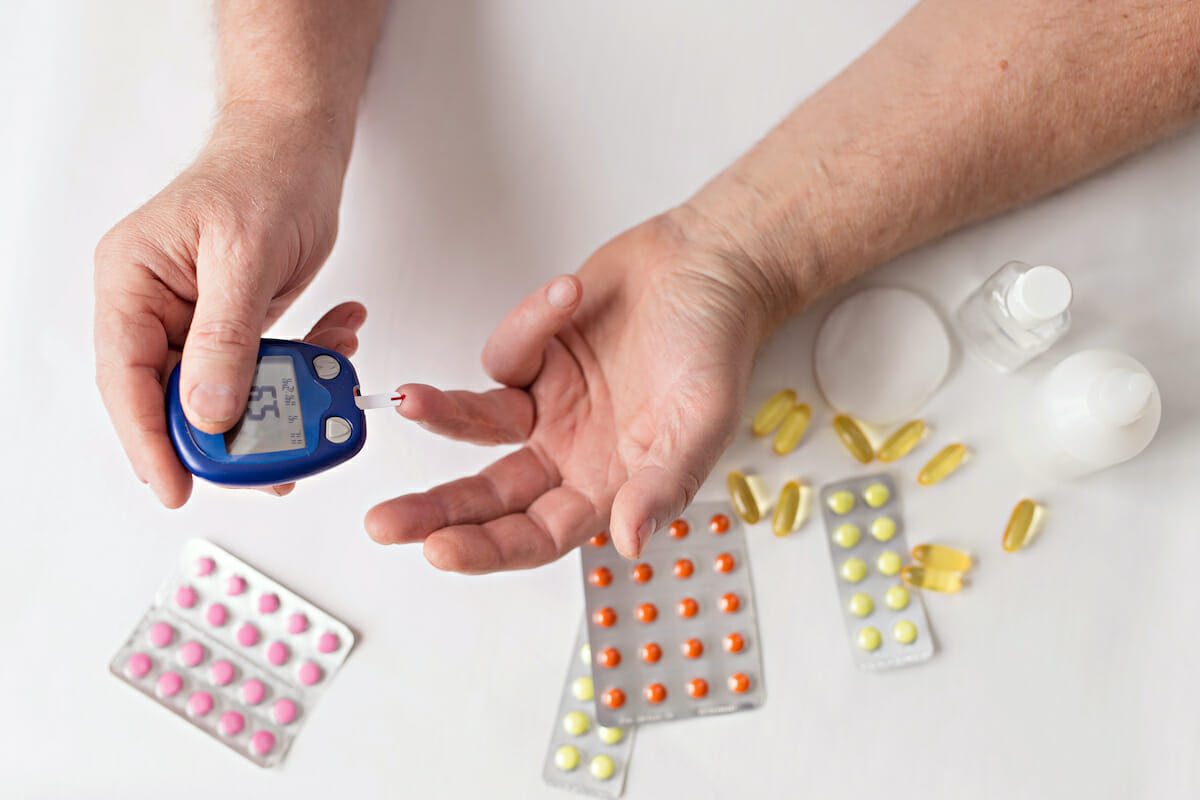We all know that one family member or friend who seems to always be craving their favorite sugary drink or snack. While having a craving for soda or sweet tea is normal, one that is constant should raise the alarm for a much more serious health issue.
Q: I’ve been craving sweets lately – could that mean I have diabetes?
A: Nope. Craving sugar is not one of the symptoms of diabetes, or hyperglycemia (too much blood glucose). Symptoms to look for are frequent urination, excessive thirst, fatigue, weight loss, and blurry vision.
If you skip meals often you may be experiencing hypoglycemia, or low blood sugar. When your blood sugar starts to dip, you naturally long for a sugary snack to get it back up. But the body processes sugar fast, so the energy surge quickly wears off and you’re left craving another cookie.
Another common culprit? Low levels of serotonin, the brain chemical responsible for making us feel happy. If you have chronically low levels, your sugar yen could be your body’s attempt to fix the problem—studies suggest that sugar increases the absorption of the amino acid tryptophan, which the body uses to make serotonin.
The good news: You can break the cravings cycle. First, stick to three or more healthy meals a day—no skipping! Blowing off a meal can cause your blood sugar to drop and your body to seek a solution—like a hit of chocolate or pint of coffee ice cream. Instead, choose good-news fare that keeps you satisfied. (Source: “What the Yuck”, medical editor Dr. Roshini Raj, whattheyuck@ health.com)
However, you may be diagnosed with hyperglycemia— an elevation of blood sugar often caused by the Standard American Diet (SAD) and a sedentary lifestyle. The cause is either insufficient production of insulin by your pancreas (type 1 diabetes) or inefficient ability of insulin to perform its normal functions, which is called insulin resistance and is found in type 2 diabetes. A highly elevated level of blood sugar can become life threatening, resulting in coma,” says Dr. Vikki Petersen, certified clinical nutritionist, chiropractor and certified functional medicine practitioner.
What are some common symptoms that are associated with high blood sugar? Here are the top 6 symptoms to look out for when it comes to hyperglycemia:
SYMPTOM #1: Fruity smelling breath
This is not something you can detect on yourself, but if a friend or family member displays very sweet breath, have them check into it, especially if they display other symptoms. This could very well be due to elevated blood sugar levels that need to be brought under control.
SYMPTOM #2: Fatigue and weakness or dizziness
The state of excess sugar is a toxic situation for your body and one that puts it on high alert. The body’s energy goes towards trying to handle the toxic levels of sugar, leaving you tired and feeling weak. If you or someone you know experiences regular fatigue or dizzy spells, consider checking blood sugar levels.
SYMPTOM #3: Headache, brain fog, trouble concentrating
Your brain and nervous system uses glucose as fuel but it needs to be in the correct amount. Both too much blood sugar and too little (hypoglycemia) can cause headache and brain fog. With the amount of sugars present in processed foods and sweet treats, it’s good to check if your blood sugar levels are too high if you experience frequent headaches.
SYMPTOM #4: Blurred vision and later blindness
Excess blood sugar damages the vessels of your retina, creating clouding of your vision and eventually permanent damage as blindness. This of course is advanced stages of untreated high blood sugar, meaning if you check on a regular basis and control blood sugar levels, you can prevent damage before it happens.
SYMPTOM #5: Increased thirst and urination
Your body is very clever and it increases your thirst as a means of trying to dilute the excess sugar and excrete it from your body with more frequent urination. If you have the ability to check your urine you will see elevated glucose in it.
SYMPTOM #6: Weight loss
The reason that weight loss occurs is that without the insulin normally produced by the pancreas, the body is forced to start burning fat stores at a high rate of speed in order to keep all of your organs functioning and your brain firing neurons to the rest of the body.
Additional source: https://diabetic. news/16-signs-hyperglycemia/9/











